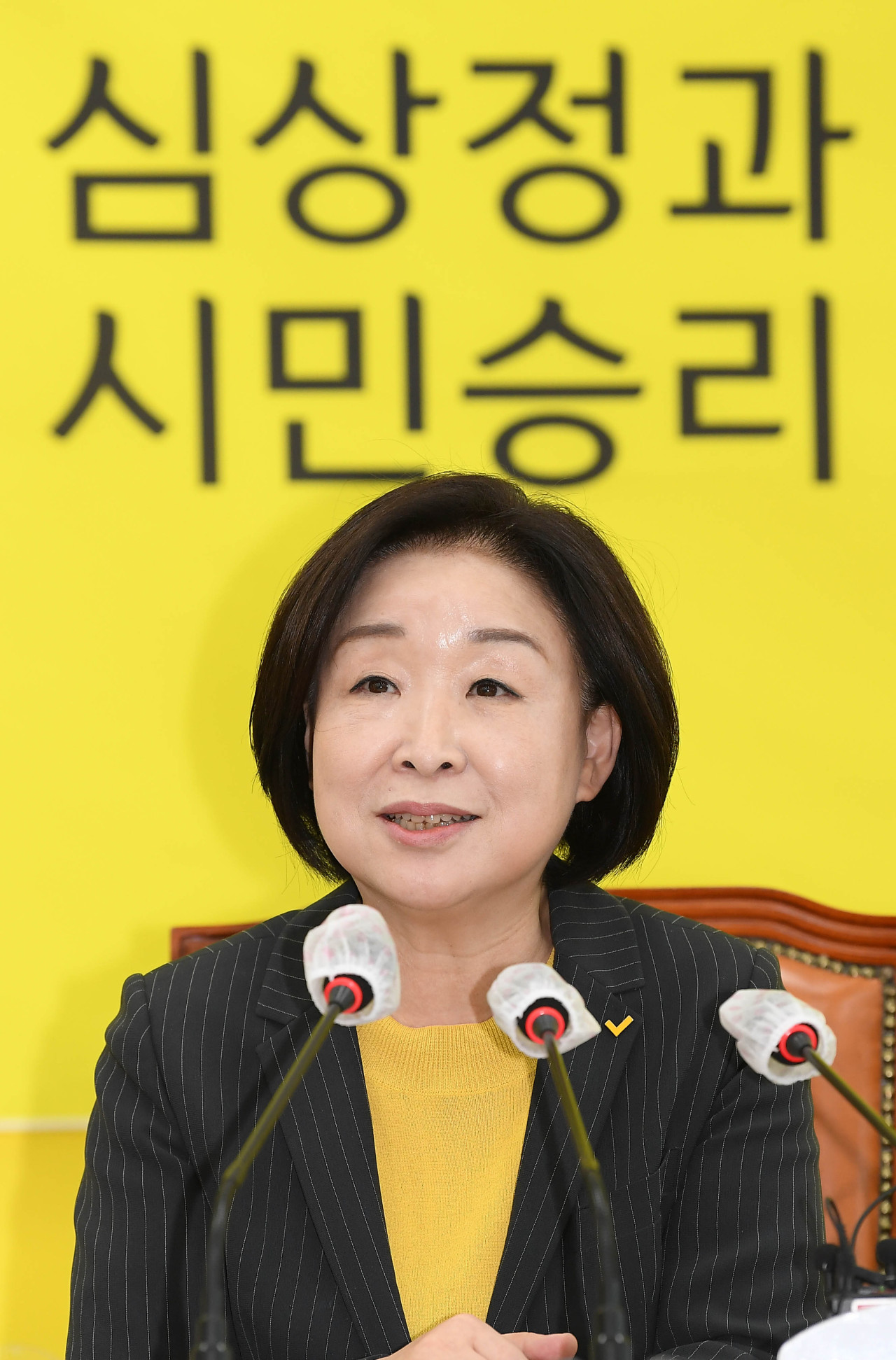The Justice Party’s presidential candidate, Sim Sang-jung, pledged Wednesday to put an end to the two-party system that has dominated South Korea’s political landscape for decades.
“The rival structure between the progressives and conservatives has passed its expiration date. The two big parties have been in power for the past 30 years and become the front-runners of vested interests,” Sim said during a sit-down with reporters at the National Assembly.
“In the battle of vested interests, there is only the game of power,” she said, adding that this presidential election should have a multilateral structure to reflect the opinions and demands of various citizens.
Pointing to the Daejang-dong land development scandal in Seongnam, Gyeonggi Province, which sparked public outcry, Sim said it exemplified the shortcomings of the two-party system. The ruling Democratic Party is a “fake progressive group,” she said, whereas the main opposition People Power Party is only about extreme populism and “ludicrous statements.”
If the people make her the next president, she said, a new era will begin where citizens hold the power, and where politicians listen to different voices within society and make the necessary compromises and adjustments.
The minor left-wing party’s presidential hopeful recalled her campaign pledge to realize a four-day workweek, saying the people’s desire for a better country had come to the surface recently as the issue became one of the hottest topics.
“The current five-day workweek was established in 2003. The system was introduced in phases from 2004 and it took seven years to fully implement it. But workplaces with fewer than five workers are still not included,” Sim said.
“If we introduce the four-day workweek when the discrimination of labor rights is neglected, there will be a lot of skeptical people. We must go in the direction of all workers being equal and implement the four-day workweek.”
The starting point of her promise is to minimize concerns about workplace or labor type discrimination, she added, and the topic of the four-day workweek should be discussed enough in this presidential election for it to be realized in the next administration.
In regard to her previous comments on proposing a joint declaration with other presidential contenders to stop the two-party system -- An Cheol-soo, the presidential candidate of the minor opposition People’s Party, and Kim Dong-yeon, a former finance minister who is running as an independent candidate -- Sim said the only thing that she has confirmed so far is that Ahn and Kim vowed to put an end to the two-party system, but she is not thinking of anything more than a joint declaration.
When asked about the possibility of merging campaigns with another presidential contender, she made it clear that she will finish the race as a representative of the Justice Party.
“This is my final answer to the question of unifying for a single candidate. If you’re not confident, you should step down from the ring,” Sim said.
Last week, Sim approached Green Party Korea and suggested forming a coalition to fight the climate crisis.
“I will be the first president who initiates responsible coalitions that walk with all parties and citizens,” she told reporters Wednesday. “In order to move toward a society of coexistence, the opinions and demands of many people must coexist in politics,” she said.
“The power of citizens must enter the deep inside of politics to lead the era of change. The conundrums, such as inequality and the climate crisis, cannot be solved by the president alone. All parties and citizens must work together.”
The Justice Party will hold a launch ceremony for the election committee next Monday, she said, and the details of her presidential campaign pledges will be announced starting next week.
In the 2017 presidential election, Sim received about about 2 million votes, or 6.17 percent of the total, finishing in fifth place.
By Kan Hyeong-woo (
hwkan@heraldcorp.com)







![[Robert Fouser] Accepting migrants in South Korea](http://res.heraldm.com/phpwas/restmb_idxmake.php?idx=644&simg=/content/image/2024/10/31/20241031050896_0.jpg)
